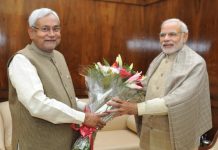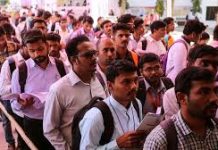A Tehelka SIT report exposes a network facilitating illegal Bangladeshi immigration into India, revealing how fake passports and identity documents are fraudulently procured to bypass security system
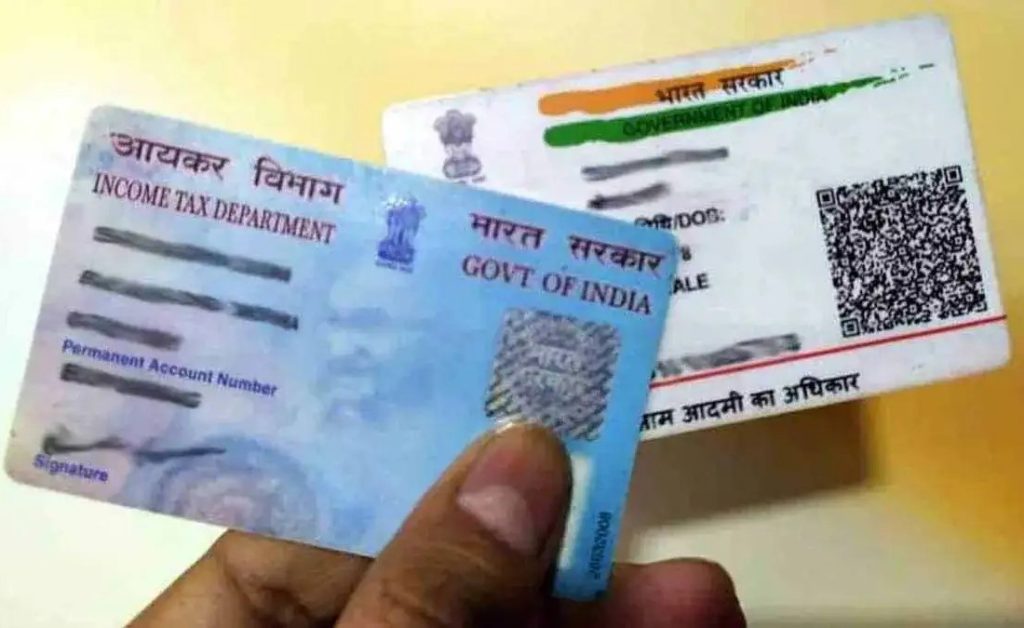
In December 2024, a police team at Indira Gandhi International (IGI) Airport, New Delhi, arrested an agent involved in creating fake Indian documents for a Bangladeshi national. The IGI Airport police were alerted to the scam after a passenger was detained during an immigration check. The accused, identified as Shamol Shen alias Samuel (26), son of Uttam Shen, is a resident of Habra, Ashok Nagar, West Bengal.
In November 2024, a former worker of the Bangladesh Nationalist Party (BNP) was arrested in Kolkata for allegedly residing in India using forged identity documents. The Bangladeshi citizen, identified as Salim Matbar, was apprehended during a midnight police raid at a hotel in the Park Street area. According to police sources, Salim, a resident of Madaripur in Bangladesh, had been living in India for the past two years using a fake passport and a forged Aadhaar card.
In October 2024, the Sahar police in Mumbai arrested two Bangladeshi nationals for allegedly using forged Indian passports for international travel. One had travelled to Ukraine using the fake passport, while the other had lived illegally in India for three decades before travelling to Mauritius, only to be deported.
In April 2024, the Fake Passport Investigation Wing of the Greater Chennai City Police arrested six Bangladeshi nationals at Chennai International Airport for presenting Indian passports. All of them had fraudulently acquired these passports using Aadhaar cards obtained over the years. With these forged documents, they had travelled to Dubai, Kuwait and Malaysia for work as well.
While such fake passport cases involving Bangladeshi nationals frequently surface in pan-Indian media, what remains uncommon is the confession of their crimes. These admissions, particularly from the criminals engaged in producing fake passports and other forged Indian identity documents, are rare.

In a bold investigative effort, Tehelka set out to expose these offenders who pose a grave threat to national security. The team successfully secured on-camera confessions, shedding light on the dark underbelly of this illicit trade. Through this investigative process, we learned that the clandestine world of fake documentation thrives on the audacity of its operators. From the streets of Kolkata to plush Delhi hotels, these agents flaunt their ability to fabricate an entire identity.
“I’ve been in the business of making fake passports and other Indian identity documents for a long time, and I’ve never been caught by the police. There isn’t a single case registered against me anywhere in India,” said Rajiv Singh (name changed), a seasoned forger from Kolkata.
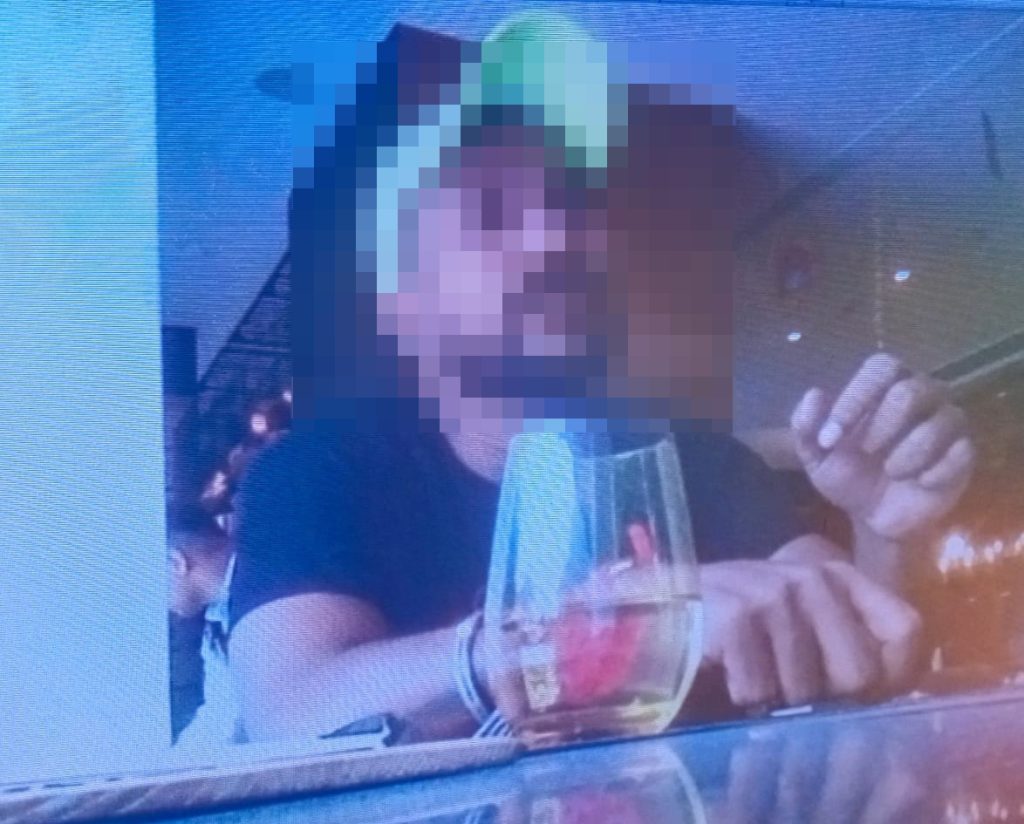
“I bring Bangladeshi nationals to India through illegal routes. Once they arrive, I arrange their Indian identity documents, including Aadhaar, PAN cards, school and birth certificates, voter IDs, and eventually, the passports,” he explained.
“In the past, I’ve facilitated the entry of illegal immigrants from Bangladesh into India. But once I’ve provided them with fake Indian documents, our association ends—we don’t know each other anymore,” Rajiv stated matter-of-factly. “So far, I’ve successfully created fake Indian documents for three Bangladeshi nationals who entered India through illegal means,” he added.
“The Tehelka investigation began with Rajiv Singh from Kolkata. Our reporter posed as a client seeking someone to create fake Indian identity documents for Bangladeshi nationals entering India through illegal routes. The meeting took place at a five-star hotel in Delhi, where Rajiv immediately accepted the job. With alacrity, he assured the reporter that he could arrange Aadhaar and PAN cards, school and birth certificates, voter ID cards, and eventually passports—all, of course, for a price.
Rajiv Singh, a key player in the local underworld, not only revealed his modus operandi but also showcased the brazenness of such operations.
Reporter- Document mein kya kya ban jayega.?
Rajiv- Document mein shuru se banayege.. pehle banayege Pan card, Aadhar card, school certificate, hospital ka birth certificate, voter card bhi ban gaya, phir banega uska passport.
Reporter- Passport bhi ban jayega?
Rajiv- Ek saptah mein uska passport bhi aa jayega….sirf paisa phekna hai bas!
[Rajiv Singh candidly explains how he fabricates entire identities—from Aadhaar to passports—in just a week, as long as the money keeps coming. It emerges that this illegal network thrives on efficiency and impunity.]
While talking to Tehelka, Rajiv now boasts about smuggling Bangladeshi immigrants, securing fake Indian identities, and evading legal scrutiny entirely. It seems that a disturbing lack of enforcement enables such networks to flourish unchecked. With years of experience in facilitating illegal immigration and document forgery, Rajiv openly discusses his methods.
Rajiv- Bhaiya aap kya bol rahe hai, hamne sirf aadhar card se Bangladesh se bula kar Kolkata ke hospital mein admit karwaya hai.
Rajiv (continues) – Wo aap tension mat lo, banda hai aap sirf number de do.. hum 2-3 din mein apne pass bula kar aapse baat karwa denge.
Reporter- Accha nikalwa dega illegally?
Rajiv- Aaram se.
Reporter- Pakda na jaaye koi ?
Rajiv- Arey kuch nahi hoga bhaiya.
Reporter- Tu to nahi pakda gaya kabhi in sab kaamon mein?
Rajiv- Nahi, kabhi nahi.
Reporter- Koi case nahi hai tere uper?
Rajiv- Ek bhi police case dikha do.. maan jayega.
[The brazenness of Rajiv Singh’s operations reveals the confidence such agents possess in their perceived immunity from the law. Rajiv’s nonchalance underscores the impunity with which these operations are conducted. ]
Rajiv now reveals the speed and scale of his operations, claiming that he can facilitate the illegal entry of 3-4 Bangladeshi nationals at a time. However he hastened to add that once their documents are forged, he cuts all ties with clients, showing a cold, transactional nature to his illicit business.
Reporter- Kitne log nikalwa sakta hai ek baar mein?
Rajiv- Ek baar mein 3-4 karke.
Rajiv (continues)- Bas ek baar document ban gaya, kaam ho gaya, uske baad koi relation nahi.
Reporter- Koi relation nahi ?
Rajiv- Haan.
[Rajiv’s approach highlights the ease with which multiple illegal immigrants can be processed, and the complete detachment once the transaction is done. It illustrates the transactional, depersonalised nature of such criminal enterprises.]
Rajiv then outlined the financial side of his operation, demanding a sum of Rs 10-15k for each illegal Bangladeshi immigrant he would help bring into Kolkata. However, once the job is done, he severs all ties, showing a pragmatic, no-questions-asked approach.
Reporter- Kitna paisa ?
Rajiv- Ab documents ka jo bolega saamne bitha kar baat karega.
Reporter- Nikalne ka kitna paisa?
Rajiv-Ab XXXXX ka pakad lo 10-15 hazar ek bande ka.
Reporter- Aur tu kitna lega?
Rajiv- Hum ko 10-15 hazar de kar rakh do.
Reporter- Ek bande ka.?
Reporter (continues)- Bangladesh se Kolkata lane ka. Kolkata hi layega na?
Rajiv- Kolkata hi layega.
Reporter- Nikalwa chukka hai aise logon ko?
Rajiv- Haan, magar kaam ho jaane ke baad na hum aapko jaanta hai na aap hum ko jaanta.
[Rajiv’s business model reveals how deeply entrenched this illegal activity is. His blunt attitude emphasizes how he views this as merely a business transaction—where money is exchanged, and any personal connection is discarded once the deal is closed.]
Rajiv then revealed that he had already facilitated the creation of documents for three illegal Bangladeshi immigrants who entered India through his assistance. According to him, once the passport is secured, the rest of the documentation follows easily.
Rajiv- Hamne banwa diye 3.
Reporter- Kya- kya banwa diye ?
Rajiv- Sare documents.
Reporter- Passport bhi?
Rajiv- Passport sabse aage nikaalta..passport nikal jayega to sab documents nikal jeyega.
[This conversation highlights the seamless and efficient nature of Rajiv’s operation—where securing a passport is the key to unlocking the entire identity package. His casual response underscores how effortlessly he anchors the process of helping illegal immigrants acquire essential identification papers, jeopardizing the national security.]
Rajiv confidently claimed that his strong connections with the police ensure no obstacles for Bangladeshi nationals entering India illegally and obtaining fake Indian documents through him. He added that those who paid swiftly would receive their documents promptly, revealing the ease with which these illegal operations run.
Rajiv- Sab apna aadmi hai, documents ka police ka koi lapda nahi…
Rajiv (continues)- ….aaram se aayega, room mein rakhega, jo jitna jaldi paisa chodega utna jaldi uska documents milega.
[Rajiv’s casual assurance about police cooperation highlights the depth of the problem, suggesting that even official channels may be compromised in such fraudulent activities. The emphasis on quicker payments further underscores the transactional nature of this illegal business.]
Now it emerges that Rajiv’s involvement in the illicit world of fake identity documents extends into even more nefarious territory. He introduced a gang member, Tausif, who specializes in hacking bank accounts. According to them, all that’s needed to carry out the crime are a few key details: an account number, IFSC code, ATM card, and mobile number. In a chilling exchange, they casually revealed the ease with which they can access and steal funds from bank accounts in just five minutes.
Reporter-Accha agar mujhe account hack karwana ho aapse kisi ameer aadmi ka, uske liye mujhe kya -kya aapko dena padega.?
Tausif- Accha kisi ka karwana hai..simple hai: passbook, ATM, SIM, IFSC code.
Reporter- Sim kaise dunga mein…uski sim mein kaise dunga aapko?
Tausif- SIM to main hi hai.
Reporter- Mobile SIM ?
Tausif- Wohi to main hai.
Tausif (continues)- Wohi main hai, jo khel hai na wohi to SIM ka hai
Rajiv – Kitna paisa hoga ?
Reporter- Crores.
Rajiv- Uska account number, IFSC code, uske ATM ka photo de paogey ?
Reprter- Haan mil jayega.
Rajiv- Bas uska number hamko bata dijiyega hum nikal denge.
Reporter- Kaunsa number?
Rajiv- Mobile number.
Reporter- Mobile number se kaise nikaloge?
Tausif- Zaroori nahi aap SIM hi do.. aap uska number bhi dogey to bhi ho jayega.
Reporter- Mobile number se?
Reporter (continues)- Maan lijiye mein aapko uska SIM de doon.. aur kuch na de paaon?
Rajiv- Khali SIM se nahi, ATM, IFSC code.. 5 minute ka kaam hai.
[This conversation sheds light on the seamless coordination between fraudulent document creators and cybercriminals. Rajiv and Tausif’s relaxed demeanor while discussing bank account hacking reveals the deeply entrenched and systematic nature of their operations. The fact that they only require basic information to steal from unsuspecting victims underlines the vulnerabilities within the financial system and the extent of their criminal reach.]
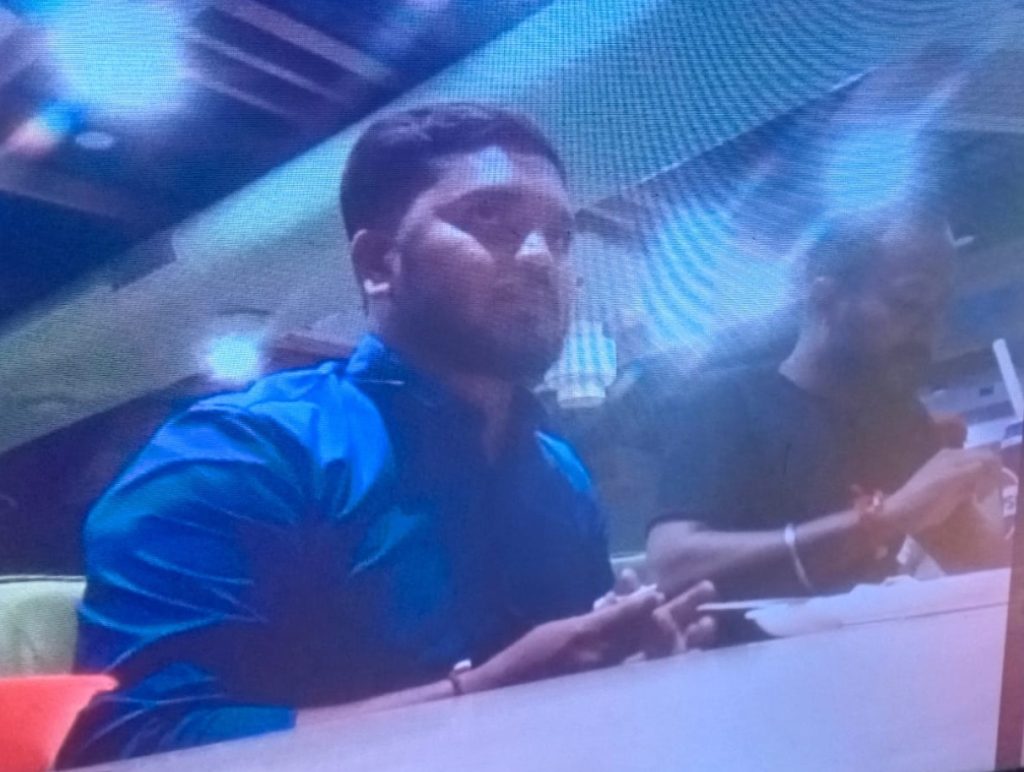
In a revealing conversation, Tausif and Rajiv explained that to carry out their bank account hacking operations, they require the target’s account details, but they also claimed to bypass the need for one-time passwords (OTPs). The two revealed that the operation could be completed in just five minutes, and despite the technical requirements, they assured the reporter that no matter the circumstances, they would still find a way to hack the account. They claimed to have already stolen substantial amounts, proudly stating that a single successful attempt had netted them as much as 4–5 lakh from one account.
Reporter- Kitni der ka kaam hai ?
Rajiv- 5 min, par aapko Kolkata rehna padega.
Reporter- Mujhko Kolkata rehna padega.. kyun?
Rajiv- Koi yahan nahi karega.
Reporter- Kyun?
Tausif- Kabhi aap aao na Kolkata.
Reporter- Mujhe aana hai.
Tausif- Kab aaogey ?
Reporter- Jaldi aaunga..lekin mein khali mobile number de doon aur kuch nahi phir, phir nahi milega.?
Reporter (continues)- Accha uske pass OTP jayega?
Tausif- Haan
Reporter- Usne nahi diya aapko phir?
Tausif- Koi nahi ATM mil jaye, passbook, IFSC mil jaaye…mobile number.
Reporter- Matlab usne OTP nahi diya aapko phir kya karoge?
Tausif- Uska ilaj bhi hai hamare pass.
Reporter- Bina OTP ke kar dogey, batao?
Tausif- Haan Bhaiya
Reporter- Mera kitna percent hoga?
Tausif- 10 percent
Reporter- Ek baar main kitna hack kar logey, kitna paisa nikal logey.?
Tausif- Abhi tak jab se main join hua hoon, tabse hamne ek baar mein 4-5 lakh kiya hai.
Reporter- 4-5 lakh?
[This conversation exposes the alarming ease with which these criminals operate. Not only can they bypass OTP security, but their stated claim to have stolen a significant amount (Rs 4-5 lakh) in a single attempt underscores the efficiency of their methods. Rajiv and Tausif’s casual discussion of such a high-stakes crime highlights the glaring vulnerabilities in both banking and mobile security, which they are quick to exploit. Also, their claim to access to critical personal data poses a severe threat to individuals’ financial security across the country.]
Tausif then confidently claimed that none of the five members of his gang, operating out of an undisclosed location in Kolkata, had ever been arrested in the last three years. He explained that the group resides in an isolated area where only Rajiv is allowed to visit, ensuring that their criminal activities remain undetected. This covert lifestyle demonstrates the security and secrecy surrounding their illegal operations.
Reporter- Accha kabhi pakde to nahi gaye?
Tausif- Nahi
Reporter- Pakka?…. aapka 5 logon ka group hai na.?
Tausif- Koi nahi pakda gaya, 3 saal mein koi nahi pakda gaya.
Tausif- Nahi, hum aisi jagah main rehte nahi.. ki pakde jaye.
Reporter- Kolkata mein hi to rehtey ho?
Tausif- Kolkata main beshak rehtey hain magar kisi ko pata nahi kahan, kisi ke yahan aana jaana nahi…Rajiv bhai aate hain.. aur koi nahi aa sakta.
[Tausif’s claim that the gang has evaded law enforcement for three years reflects the extent to which criminal networks can operate with impunity. This covert lifestyle demonstrates the security and secrecy surrounding their illegal operations. With the gang succeeding in evading capture, their continued criminal actions put the public at great risk.]
Now, Tausif revealed to Tehelka the inner workings of his gang’s operations, centered around a rented flat in Kolkata. The flat owner, unaware of their activities, lives elsewhere, while the gang uses the flat only as a transient base for their illegal activities. As the conversation unfolds, it becomes evident how carefully they maintain this facade, visiting the flat solely for hacking operations to avoid arousing suspicion.
Tausif- Flat le rakha hai.
Reporter- Kiraye par….makaan malik ko nahi pata aap kya kar rahe ho, wo kahan rehta hai.?
Tausif- Uska ghar kahin aur hai.
Reporter- 24 hours aap wahin rehte ho?
Tausif- Jab kaam hota tabhi rehtey.. jab kaam hota hai tabhi aate hain.
[The conversation unveils the gang’s meticulous strategy of using temporary, untraceable setups to shield their operations from scrutiny. It serves as a grim reminder of how urban anonymity aids modern crime.]
Tausif disclosed that the victims of his gang’s bank account hacking might have lodged complaints with the police, but the authorities do not stand a chance to trace them. The conversation highlights the gang’s confidence in their methods.
Reporter- To jin logon ka paisa udhta hai wo police mein complaint nahi karte.?
Tausif- Karte honge magar police ko kuch nahi milta.. ID thodi na mil jayegi wahan.
Reporter- To aaj tak jinka paisa nikala.. kuch nahi hua?
Tausif- Kuch nahi hua.
[The exchange sheds light on the glaring inefficiency of law enforcement in tackling such crimes, emboldening criminals. The cybercriminals’ confidence stems from their belief in the system’s inability to uncover their identities, leaving victims frustrated and justice elusive.]
Now, Tausif revealed a key detail of his gang’s operation: they constantly switch SIM cards to evade detection. The conversation underscores their deliberate efforts to stay ahead of law enforcement by avoiding patterns that could expose their activities. Their brazenness becomes evident as they casually acknowledge the need for such precautions.
Reporter- Jis sim se aap calling karte ho, ye sim badaltey rehte ho?
Tausif- Badalna hi padhti hai, bhai saheb.
Reporter- Ek hi sim se to call karogey nahi.. warna pakde jaogey.
Tausif- Itne to aap bhi samajhdar ho.
[The dialogue highlights the gang’s calculated approach to dodging surveillance, exploiting loopholes in tracking mechanisms. It underscores need for urgent corrective measures.]
Tausif and Rajiv divulged to Tehelka how their gang fraudulently acquires SIM cards through a nexus with mobile vendors in Kolkata. The conversation sheds light on the seamless coordination within their network, from vendors providing SIM cards without proper verification to individuals ensuring their operations run uninterrupted. Their casual admission underscores the audacity and scale of their organised fraud.
Reporter- To SIM tumhe kaise milti hai.. wo to address par milti hai.?
Tausif- Wo hamare MD hai na wo sab jugad kar letey hain.
Reporter- Mohd Imran?
Tausif- Haan
Reporter- Mobile bhi hack kartey ho aap ?
Rajiv- Jo mobile ka sim nikalta hai wohi apna hai.
Reporter- Matlab?
Rajiv- Jo mobile ka sim dete hai wo bhi apna aadmi hai.
Tausif- Bhai jab itna bada kaam ho raha hai to sari jagah setting to hoti hi hai .
Reporter- Jaise aapne koi sim liya hua hai, aapki ID wahan par hai, theek hai, mein gaya wahan sim lene, maine dukan wale se kaha kisi aur ki ID par mujhe sim de de, to usne aapki ID par mujhe sim de diya.
Rajiv- Aapka jaan pehchan hoga tabhi to dega.
Reporter- Haan meri jaan pehchan hai,..to mein kahunga ye Rajiv hai.. iski ID par mujhe sim de de.
Rajiv- Haan.
Reporter- Yehi keh rahe ho na aap .?
Rajiv- Haan
Rajiv- Aap ek SIM bologey aapko 2 dega
Reporter- Kis company ki ?
Rajiv- Jiski bolo, airtel…
Reporter-Prepaid hoga ya post paid.?
Rajiv- Wo aapke uper hai, pehle jo charge hoga usper recharge hoga.
Reporter- To kabhi mujhe Delhi mein SIM chahiye.. mil jayegi ?
Rajiv- Aaram se.
[The exchange reveals the deep-rooted collusion enabling identity theft, where weak verification systems are exploited with alarming ease. It is a stark reminder of how systemic loopholes fuel organised cyber crime, demanding immediate reform.]
Tausif then brazenly asked the reporter for access to ordinary people’s bank accounts, intending to use them for parking stolen money. In return, he offered a 10% commission, revealing the exploitative nature of his gang’s operations and their reliance on unsuspecting individuals to serve as intermediaries in their fraudulent activities.
Reporter- To mein kitne gareeb account de doon aapko ?
Tausif- De do jitney.
Reporter- Magar wo sab Delhi ke hongey.?
Tausif- Koi baat nahi
Reporter- Mera kya hoga ?
Tausif- Ek account ka 10 percent.
[The conversation starkly exposes the gang’s strategy of using vulnerable ordinary people as pawns to further their schemes.]
Tausif made another disclosure when he explained that their operation requires not just the bank accounts of ordinary people but also their SIM cards. This allows the gang to monitor activities and ensure that the account holders do not withdraw the stolen funds.
Reporter- Gareeb ka SIM ka kya karogey.?
Tausif- Jaise maine gareeb ke account mein daal diye 50,000 rupees, mein kya dekh raha hoon ATM se nikal raha hai ya, kya kar raha hai,..check thodi karne ja rahe, aap samajh rahe.. aapne mere account mein dal diye 1 lakh rupees, aap dekh to nahi rahe ho mein phone se nikal raha hoon ya ATM se.
[The conversation reveals the gang’s intricate method of micromanaging their fraudulent schemes to safeguard stolen funds. The exchange highlights their calculated approach for maintaining control over their illicit transactions.]
Now, Tausif elaborated on the stringent recruitment process within his gang, emphasizing that trust is a rare commodity in their world. The gang employs a meticulous vetting process to ensure that only those deemed reliable are allowed in, revealing their fears about infiltration and betrayal.
Reporter- To tum har kisi ko aise rakhtey nahi honge.?
Tausif- Nahi…wo to Rajiv bhai mil gaye hame.. attach ho gaye.
Reporter- To jaanch partal kartey hogey, koi jasoos na aa jaye.?
Tausif- Nahi -nahi…pooch lo hum kisi ko ander hi nahi bulatey, hum kisi par bharosa hi nahi karte.
Reporter- To aap par kaise bharosa kiya Imran ne.?
Tausif- Kuch log bharose ke layak hotey hain..tabhi to bharosa kartey hain sab..
[The conversation underscores the gang’s guarded nature, with trust as a carefully rationed resource. It reflects how criminal networks operate with a mix of caution and calculated risk, mirroring the high stakes of their illicit endeavours.]
Now, Tausif disclosed his earnings from the hacking business amounted to Rs 2.5–3 lakh per month, derived as a 30% commission from the hacked accounts. He also vouched for the integrity of his associate Imran, highlighting a rare camaraderie within the otherwise distrustful network.
Reporter- To aapko kitna paisa milta hai ismein ?
Tausif-Ye mil jata hai 2.5-3 lakh.
Reporter- 2.5 -3 lakh mahine ke ..kitna percentage milta hai aapko?
Tausif- 30 percent.
Reporter- Jo bhi paisa niklega uska 30 percent aapka?
Reporter- Imran ne kabhi baimani to nahi kari aapke saath?
Tausif- Badiya hai wo, mein uski tareef karunga, kabhi uske khilaf nahi.
[The conversation reveals the lucrative nature of the hacking enterprise and the monetary incentives driving it. It also sheds light on the gang’s internal dynamics, where loyalty to key figures plays a crucial role in maintaining operations.]
Growing tensions between India and Bangladesh have escalated, driven by allegations of attacks on Bangladesh’s Hindu minority. These incidents have ignited mass protests across both nations and even led to an assault on a Bangladeshi consulate in India. The strained relations reflect a broader undercurrent of unresolved issues that continue to challenge bilateral ties. In India, the issue of illegal immigrants from Bangladesh has remained a highly sensitive and contentious topic. A recurring narrative in Indian media highlights how these immigrants, entering the country through illicit means, manage to acquire valid Indian identity documents fraudulently.
Tehelka’s investigation sheds light on just one facet of this deeply entrenched problem. By exposing an agent who not only facilitates illegal entry but also ensures the procurement of fake Indian passports and other counterfeit identity documents, the investigation underscores the existence of a vast and complex network operating with impunity.
While this investigation highlights a single thread, it is clear that the broader gamut of such illegal activities remains to be fully unravelled. Addressing these issues will require a concerted effort involving stricter enforcement, cross-border cooperation, and systemic reforms to close the loopholes that allow such operations to thrive.



